CM’s Ultimate Guide to the English Education Major
Despite the multiple career options English majors can choose from, the most common question asked regarding their occupation revolves around: “Are you going to be a teacher?” The most common answer to that question? Yes! Most English education majors dedicate years of blood, sweat and tears to become future educators, whether they teach excited kindergarteners how to read through colorful picture books or discuss Shakespeare’s “Romeo & Juliet” to uninterested high school students. Ask any English education major why they strive to become an English teacher, and they’ll surely respond (or digress) with an inspirational speech about the importance of reading, on top of wanting to make reading fun again.
Read on for College Magazine’s Guide to Being an English education major!
What You’ll Be Doing
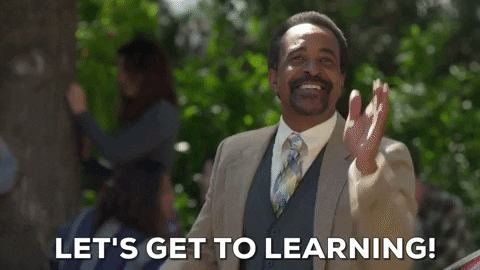
Most students think of English class as just another requirement to graduate high school to prove their literacy. While this may be true, the goal of an English teacher amounts to revealing the social, cultural, political and historical nuances of the novel, among many other aspects subtly hidden between the lines. English educators additionally work towards strengthening the voices of their student’s writing and exposing them to cultural and philosophical ideologies, as well as allowing them cognitive freedom when discussing themes of current reads.
The Importance of English Educators
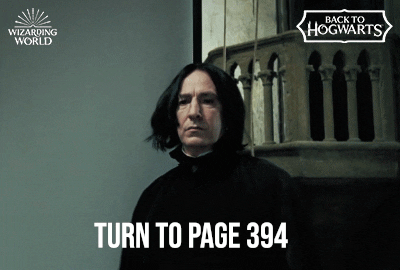
Students of all ages and even adults overlook the massive role English teachers or professors play in their education. English teachers guide their students towards the analytical skills they’ll use for the rest of their lives, on top of being the main contributors to the development of reading comprehension and writing. “They teach us at all ages, and make us discover how we think about the world in our own view. Sometimes, it’s more about what’s on the surface and context of things we’re reading as opposed to diving deeper to the underlying message,” College of Staten Island junior Angelina Salvador said. “They teach us ideas and philosophies from other authors that can have an impact on how we view the world and other texts we read.” When taught in a meaningful way, literature can inspire a desire to learn more in previously unimpressed students, along with enriching young minds with formerly unknown ideologies and interpretations.
Classes You’ll Be Taking
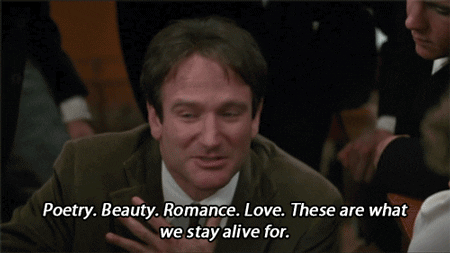
As an English education major, the education classes you take depend on the grade you plan to teach, leaving you with multiple English classes to explore. Classes range from awareness in diversity in education to a focus on Gothic literature. Some students found that the classes closely related to the level of English they planned on teaching were the most interesting. Along with classes like Introductory Writing, in which students learn how to write professionally, there are classes such as Global Literature, where English educators become exposed to authors from all over the world throughout the ages. Students fortunate enough to take classes such as Classic Juvenile Fantasy Literature can read series like “Harry Potter” to better understand the type of literature children read while developing their literacy skills.
Career Opportunities
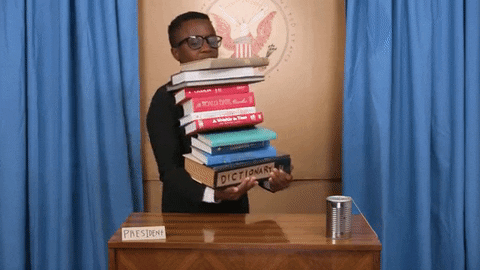
Obviously, you chose English education as your major because you want to work in your own classroom one day. You most likely already envisioned what grade you will teach for the next 20 and counting years of your life. Some imagine reading to energetic grade-schoolers or teaching English to eager ELL students, while others see themselves teaching “A Streetcar Named Desire” to a room full of overworked AP students. Many teachers jump at the chance to teach AP students due to the opportunity to expose them to works normally left out of the regular English curriculum.
Even in the teacher’s seat, you get to feel challenged. “I feel fortunate to have been offered the opportunity to teach AP Literature,” said Robert Boyd, an English teacher at Susan E. Wagner High School. “Once we stop challenging ourselves in life, we are defeated. I love to challenge eager minds and witness the progress toward new understandings. To have the potential to help intelligent young minds grow even stronger and hungrier is what motivates me. Teaching AP Literature has brought me the most satisfaction as an educator.” Without eagerly challenging yourself as a teacher, how can you expect your students to step up to exciting new literary challenges?
1. K-12 Teacher
Most English educators look to work with students ranging anywhere from five years old to eighteen, hoping to expose them to the wonders of literature while their minds are still (somewhat) sponges. In a day and age where devices dictate the lives of nearly every member of society, select individuals find solace in reading a good book. This type of enjoyment, exclusive to readers, embodies what English teachers want to bestow upon their students. A break from scrolling through TikTok or Instagram and diving into a fantasy book such as “Percy Jackson and the Olympians” not only teaches students invaluable lessons and brushes up on their vocabulary, but also allows for a moment of escape from the real world.
2. Special education teacher
As schools grow more inclusive, special education teachers provide an essential role in ensuring students with specific needs understand the material. Whether they teach only special education students in their own classroom or provide individualized help to students within a larger classroom, special education teachers represent an integral part of many students’ days. Additionally, special education teachers may spend several hours with their students in resource rooms ensuring they get the proper education needed to thrive.
3. English Language Learners (ELL) teacher
Educators who predominantly teach students English from other countries prove extremely important. Without understanding the basics of the English language, students feel virtually unable to grasp the information taught to them in their other classes, making their transition all the more difficult. ELL educators offer their students a safe environment to learn and practice their rapidly growing English skills while developing lasting relationships with their peers and educators alike.
ELL teachers typically spend at least two class periods a day working closely with their students, giving them the opportunity to learn more about their students, on top of being a comforting presence in an unusual and seemingly chaotic setting. Additionally, ELL teachers are usually proficient in at least one other language, which allows them to better educate and connect with their students.
4. Advanced Placement Teachers
Most high school students take Advanced Placement classes for an opportunity to skip out on pre-requisite courses throughout their college career. Most AP teachers additionally teach regular and honors English classes, but feel overjoyed at the opportunity to teach college-level material. This, and the ability to intellectual discussions with students who actually read the book. If taught properly, AP English classes truly prepare ambitious students for their college workload, expose them to crucial aspects of writing papers — such as MLA format — and reveal the differences between formal and informal papers. They also aid students in lessons on how to properly cite or quote the text discussed within their paper.
5. College Professor
The discussions that take place in a college classroom prove some of the most intriguing and stimulating conversations that any English education major will encounter during their undergraduate or graduate years. Depending on the type of classroom your professor leads, you’ll experience more conversations than grueling lectures, which makes reading those 100+ pages all the more satisfying. Staying up all night to read, only to say something that warrants a rare compliment from your professor, even feels more satisfying than the actual in-class discussion of the novel. The material that professors assign to their students allows them the intellectual freedom that high school curriculums typically lack, allowing them the opportunity to write a unique five-page paper as to why Victor Frankenstein was actually in love with Henry Clerval instead of Elizabeth.
Internship Opportunities
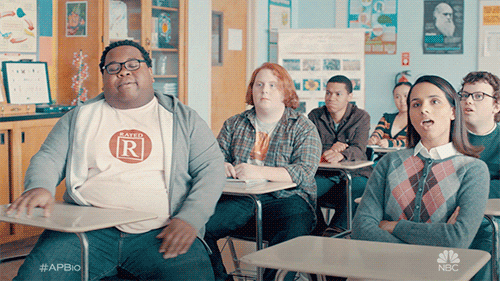
The main internship opportunity any English education major applies for takes place within a school setting. However, multiple opportunities arise for an English education major searching for internships to gain invaluable experience. “With an English concentration, you can get internships at publishing companies, writing centers, the library and tutoring centers,” SUNY New Paltz junior Alyssa Albano said. “With an education background, you can also get internships with summer camps and places like the Boys and Girls club. I was recently an intern at the Hudson Valley Writing Project, where it was focused on building students’ writing skills and promoting literacy development at all levels of education.” Just because you couldn’t land an internship in a school setting doesn’t make any other educational internship less valuable. In fact, the lessons you learn from other educational internships prove incredibly useful once you finally score that internship with a school!
Finally Getting to Fieldwork
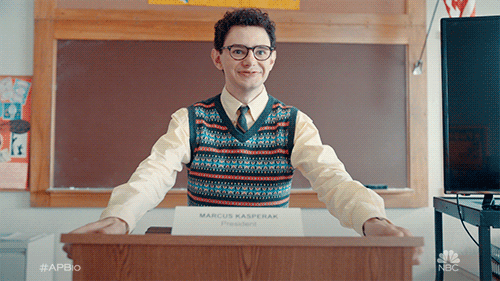
All education majors dream of the day when they get to fulfill the role of a student-teacher. Not only does it give them the opportunity to be the teacher for a change, but it also allows them to develop relationships with the teacher they work with and the students in the classroom. Fieldwork allows prospective teachers to see the inner-workings of the classroom, in addition to the teaching methods from a new angle. “Having the opportunity to work with students in a real setting is beneficial because you can take notes on how the teacher in the room handles certain situations and on their teaching methods,” St. John’s University English education major Sam Haynia said.
“My best experience during fieldwork was when I was conducting hours in a special education school. I spent a few days working directly with a study with a severe case of cerebral palsy and it was a very humbling and eye-opening experience. It taught me patience and showed me how that kind of work is something I could see myself doing in the future.” The first-hand experiences that come with completing fieldwork allow future educators to get a feel of what type of teacher they’ll become. Fieldwork additionally reinforces the fact that all students truly are different, allowing student teachers to keep an open mind when they step into their own classroom one day.
Accepting Criticism
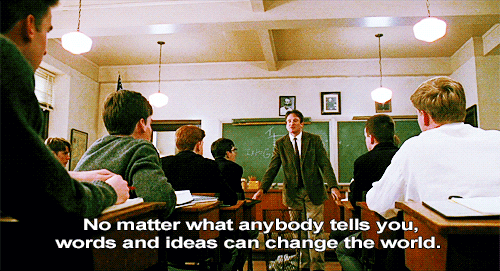
Learning how to accept and grow from criticism pertains to any job; however, when an English education major receives criticism on a particularly long paper they dedicated days to researching and writing, it may sting more than just a tiny bit. Learning how to accept criticism early on presents a crucial step for future educators — your lesson plans will be criticized, the parents of your students will criticize you and even outspoken students may criticize you. “Taking criticism is important as an educator because you will be constantly judged by several groups of people,” St. John’s University junior Anthony Favuzzi said. “In my future classroom, I would apply this by only taking constructive criticism to improve my teaching.” Learning how to accept criticism also allows future educators to give criticism to their own students. Don’t like the way a professor or a peer told you how to revise your work? Take that experience and apply it to your future students.
Reviews
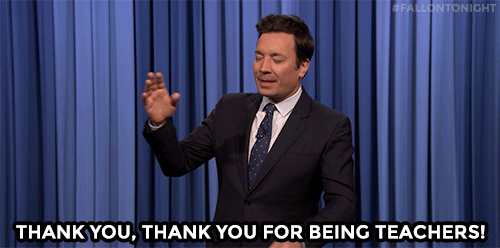
“As the saying goes, the tools of the trade are the head and the heart. Always continue to learn and have a boatload of patience. Never stop reading literature and poetry. Reading unlocks seemingly impregnable doors and makes us more open-minded. Poetry helps us face and try to solve life’s enigmas. Books teach us empathy, love, understanding, connection, inclusion and history. Writing is an open canvas for well-crafted, individual expression,” said Robert Boyd, an English teacher at Susan E. Wagner High School.
“Don’t feel confined to just reading the classics! There’s a whole genre of fantasy and young adult fiction that could open your mind and inspire you. In the long run, these books could appeal to your students,” SUNY New Paltz junior Alyssa Albano said.
“Your major is extremely important and valid. We will teach the next generation and it’s important to keep teaching the younger generations literature from the start. Teachers are so underappreciated and deserve so much,” College of Staten Island junior Angelina Salvador said.
Curated List of Must Reads
Any English major dreads the dense works assigned to them on syllabus day, but you know what makes reading these novels even more frightening for English education majors? The thought of teaching the same books you Schmoop’ed for class to your own class. Check out a list of English education major approved must-read novels, guaranteed to prepare you for a long, beloved tenure of teaching literature to students who will most likely rely on Sparknotes to explain the book. Many of these works will appear on syllabi throughout your undergraduate years, and depending on what grade you plan on teaching, you may eventually teach them yourself.
Recommended books include:
- The Catcher in the Rye by J.D. Salinger
- Fences by August Wilson
- Wuthering Heights by Emily Brönte
- Frankenstein by Mary Shelley
- Hamlet by Shakespeare
- Othello by Shakespeare
- Northanger Abbey by Jane Austen
- Is Everyone Really Equal? By Sensory & DiAngelo
- Multiplication Is For White People: Raising Expectations for Other People’s Children by Lisa Delpit
- The Norton Anthology of Literature
tinyurlis.gdv.gdv.htu.nuclck.ruulvis.netshrtco.detny.im
